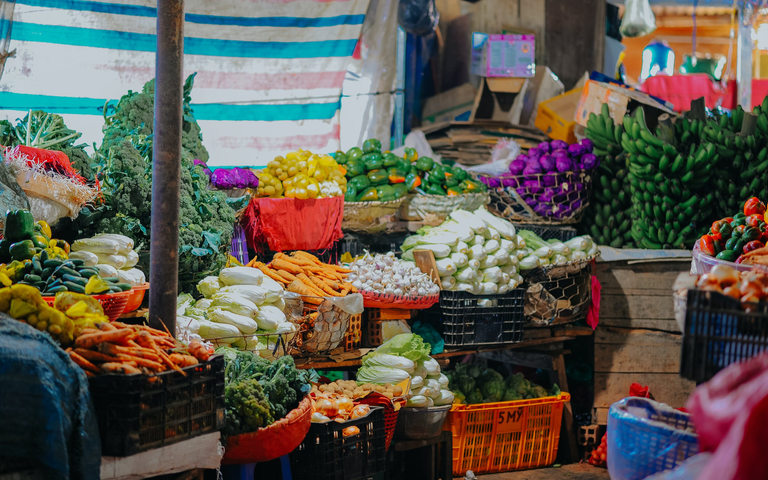Is being Vegan worth it?

Being a vegetarian has become increasingly popular over the years, with more and more people choosing to abstain from eating meat for a variety of reasons. Whether it’s for health, environmental, or ethical concerns, the decision to become a vegetarian is a personal one that requires a significant amount of dedication and commitment. However, being a vegetarian is not without its challenges, and there are definitely some issues associated with this lifestyle choice, particularly when it comes to being a vegan.
To start, let’s discuss what it means to be a vegetarian. Simply put, a vegetarian is someone who does not consume meat. This includes red meat, poultry, and seafood. There are different types of vegetarians, with some still consuming dairy and eggs (lacto-ovo vegetarians), while others avoid all animal products, including dairy, eggs, and even honey (vegans).
One of the main issues associated with being a vegan is the potential for nutritional deficiencies. While it is entirely possible to have a well-balanced and nutritious diet as a vegan, it does require some careful planning. Without meat, dairy, and eggs, vegans need to find alternative sources of protein, iron, calcium, vitamin B12, and omega-3 fatty acids. This means including plenty of nuts, seeds, legumes, whole grains, fruits, and vegetables in their diet. While these foods can provide many of the necessary nutrients, it may require a bit more effort to ensure that all of the nutritional needs are being met.
Another issue that vegans often face is the lack of options when dining out or traveling. While vegetarian options have become more prevalent in recent years, it can still be difficult to find vegan options at restaurants and other dining establishments. This can be frustrating and isolating, especially in social situations where everyone else may be enjoying dishes that contain animal products.
On a positive note, the rise of veganism has led to an increase in the availability of plant-based alternatives to traditional animal products. There are now countless plant-based “meats,” “cheeses,” and “milks” on the market, making it easier than ever to enjoy familiar dishes without sacrificing one’s ethical beliefs. These alternatives can be a helpful way for vegans to feel satisfied and included in meals that they may have previously felt excluded from.
It’s also important to address the misconceptions and criticisms that are often directed towards vegetarians and vegans. Many people falsely assume that vegetarians and vegans are not getting enough protein, iron, or other essential nutrients, and this can create a stigma around this lifestyle choice. In reality, with proper planning, it is entirely possible to get all of the necessary nutrients from a plant-based diet. There are countless examples of successful athletes, bodybuilders, and other highly active individuals who thrive on a vegan diet, proving that it is more than sufficient for meeting one’s nutritional needs.
So, how can one balance their diet as a vegetarian or vegan? The key is to focus on variety and ensure a well-rounded intake of different plant-based foods. This means incorporating plenty of fruits, vegetables, whole grains, legumes, nuts, and seeds into one’s diet. It’s also important to pay attention to specific nutrients that are commonly lacking in a vegan diet, such as vitamin B12, iron, and omega-3 fatty acids. This may require the use of fortified foods or supplements to ensure that these needs are being met.
Additionally, it’s important to be open to trying new foods and recipes. There are countless delicious and nutritious plant-based meals out there, and experimenting with new ingredients and cooking methods can make the transition to a vegetarian or vegan diet much more enjoyable. It’s also helpful to seek out support and resources, whether that’s through online communities, cookbooks, or local vegetarian and vegan groups.
In conclusion, being a vegetarian or vegan comes with its own set of challenges and issues, but it is entirely possible to live a healthy and fulfilling life on a plant-based diet. With careful planning and a willingness to explore new foods and options, it is entirely possible to meet all of the necessary nutritional needs while leading an ethical and environmentally conscious lifestyle. While being a vegetarian or vegan may require some extra effort and consideration, the benefits in terms of personal health, animal welfare, and environmental sustainability make it a worthwhile choice for many individuals. So, whether you’re a long-time vegetarian or someone who is considering making the switch, know that it is entirely possible to thrive on a plant-based diet, and that there is a supportive community out there to help you along the way.
References
- https://www.verywellfit.com/health-benefits-and-risks-of-eating-vegan-4104567
- https://www.altamed.org/article/pros-and-cons-vegan-diet
- https://www.healthylivingdirect.com/blog/post/veganism-pros-and-cons
- https://www.google.com/amp/s/m.timesofindia.com/life-style/food-news/7-dangerous-side-effects-of-vegan-diet/amp_etphotostory/77717097.cms
- https://www.google.com/amp/s/www.healthshots.com/healthy-eating/nutrition/world-vegan-day-pros-and-cons-of-following-a-vegan-diet/amp
- https://flo.health/menstrual-cycle/lifestyle/diet-and-nutrition/pros-and-cons-of-veganism


the biggest problem in here is that these false animal-derived foods are very processed and not so healthy. I understand the points that vegans bring about meat consumption, and I agree with some of them. The meat industry lacks some ethics. We are omnivorous animals and we need some nutrients only found in animals, in my opinion we need to find a balance on that.
Want to Know more about Hivepakistan?
Ping Us On Hive Pakistan Discord server
To support HivePakistan, delegate Hive Power to hivepakistan and earn 90% curation reward :)
Here are some handy links for delegation
A delegation of 500 or more HP makes you earn Hivepakistan supporter badge.
Thanks so much buddy for stopping by.
My dear young bro @jsalvage !
James!
I cannot be a vegetarian because my body needs animal protein.
Since humans are omnivores, I think they absolutely need animal protein, which cannot be obtained from a vegetarian diet!
I agree with some of your points, but I guess I have the genes to not be vegetarian!
I believe that we should get the nutrients from animal-based diets that we cannot get from vegetarian diets!😃
It is based on choice. Not everyone would want to go for vegan !!!!
Thanks for your contribution to the STEMsocial community. Feel free to join us on discord to get to know the rest of us!
Please consider delegating to the @stemsocial account (85% of the curation rewards are returned).
You may also include @stemsocial as a beneficiary of the rewards of this post to get a stronger support.
Congratulations @jsalvage! You have completed the following achievement on the Hive blockchain And have been rewarded with New badge(s)
Your next target is to reach 80000 upvotes.
You can view your badges on your board and compare yourself to others in the Ranking
If you no longer want to receive notifications, reply to this comment with the word
STOPCheck out our last posts:
Well i think it’s more to be a personal choice being a vegan or not (and maybe sometimes medical issues not sure about that) but yes for some people it worth it. By the way you can check the week InLeo they’re having a better UI now and you can post such articles there and benefit and you’ll find some enthusiast members there👍
Thanks so much for coming around. I didn't know such post is now allowed in leo
Good content is always welcomed but for sure the focus is on financial content.
keep up the good work fren